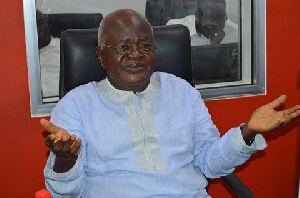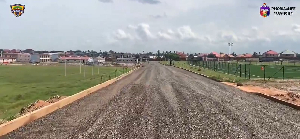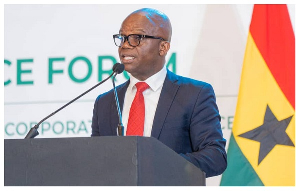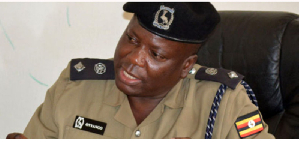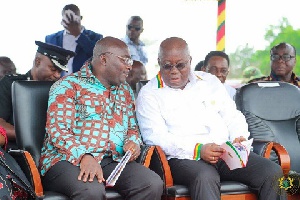- Home - News
- TWI News | TV
- Polls
- Year In Review
- News Archive
- Crime & Punishment
- Politics
- Regional
- Editorial
- Health
- Ghanaians Abroad
- Tabloid
- Africa
- Religion
- Election 2020
- Coronavirus
- News Videos | TV
- Photo Archives
- News Headlines
- Press Release
General News of Saturday, 7 May 2016
Source: rainbowradioonline.com
Deleting minors from voters' roll will be difficult – Fmr EC Director
A former chief director who served with the Electoral Commission (EC), Mr. Kwame Damoah Agyemang says it will be extremely difficult for the Commission to delete minors from the electoral roll as the biometric data is not programmed to identify such persons.
According to him, one cannot look on the face of the photo of a registered voter to determine his age or refer to him or her as a minor as the voters who registered during the biometric registration exercise in 2012, registered as persons who had turned 18.
Mr. Agyemang speaking in an interview with Kwame Tutu on Frontline on Rainbow Radio noted that although the ruling by the Supreme Court ordering the Commission to clean the register is in order, deleting the names of minors will be extremely difficult.
The Supreme Court by a unanimous decision ordered the EC to delete the names of persons who registered with the National Health Insurance (NHIS) cards during the biometric registration exercise, and make provision for the affected person to re-register.
The ruling also ordered the EC to delete names of minors and ghost names from the electoral role.
The court gave its ruling on a case brought before it by, Abu Ramadan, former youth organiser of the People’s National Convention (PNC) and Evans Nimako, a farmer challenging the credibility of the register.
The two have been insisting that the voters' register in its current state is not fit to be used for the November election hence praying the court to declare it as null and void.
However, the court in its ruling ordered the EC to clean the register of all ineligible persons including minors, ghost names and voters who registered with NHIS cards.
But commenting on the ruling particularly on the cleaning of minors from the register, Mr. Damoah Agyemang said it will be difficult to just look on the face of a photo of a registered voter to determine that he or she is a minor, however, it will be much easier for the EC to delete the names of persons who registered with NHIS cards.
According to him, the current biometric data system has all the details of all the persons who registered with the cards.
‘’Fortunately we are in the computer age. The 2012 biometric registration is computer based. The data of all those who registered with the NHIS cards is captured on the system and with a simple command, the system will print all the names of such persons.’’
Mr. Damoah Agyemang argued that the ruling by the court is in order but long overdue because the current register is not credible for an election.
He said the ruling is not directly for a replacement rather, it is meant to clean the current register which is flawed.
He explained that this ruling is a specific order as compared to the 2012 landmark election petition ruling which requested the Commission to undertake electoral reforms.
The data on those who used NHIS cards to register he stressed is with the EC; hence, they should immediately consult it various stakeholders on the way forward.
On the issue of validation or the deletion of persons suspected to be dead, he said, the process will require proof from the family whose relatives are dead before the EC can delete it.
He noted, should the EC delete names of persons on the register through validation or confirmation without documentation and proof, they can be cited for illegality.
He was of the view that, the EC if they want to validate names and delete names of persons who fail to confirm their names, then they would have to propose a legal instrument, lay it before Parliament and get it approved.
He opined that it should not take the EC more than three weeks to comply with the order by the Supreme Court.
Mr. Damoah Agyemang concluded that the current happenings at the EC show clearly that the officials are not working together, confused and disregarding the laws regulating the electoral process; a situation he noted could create more problems for the Commission.

